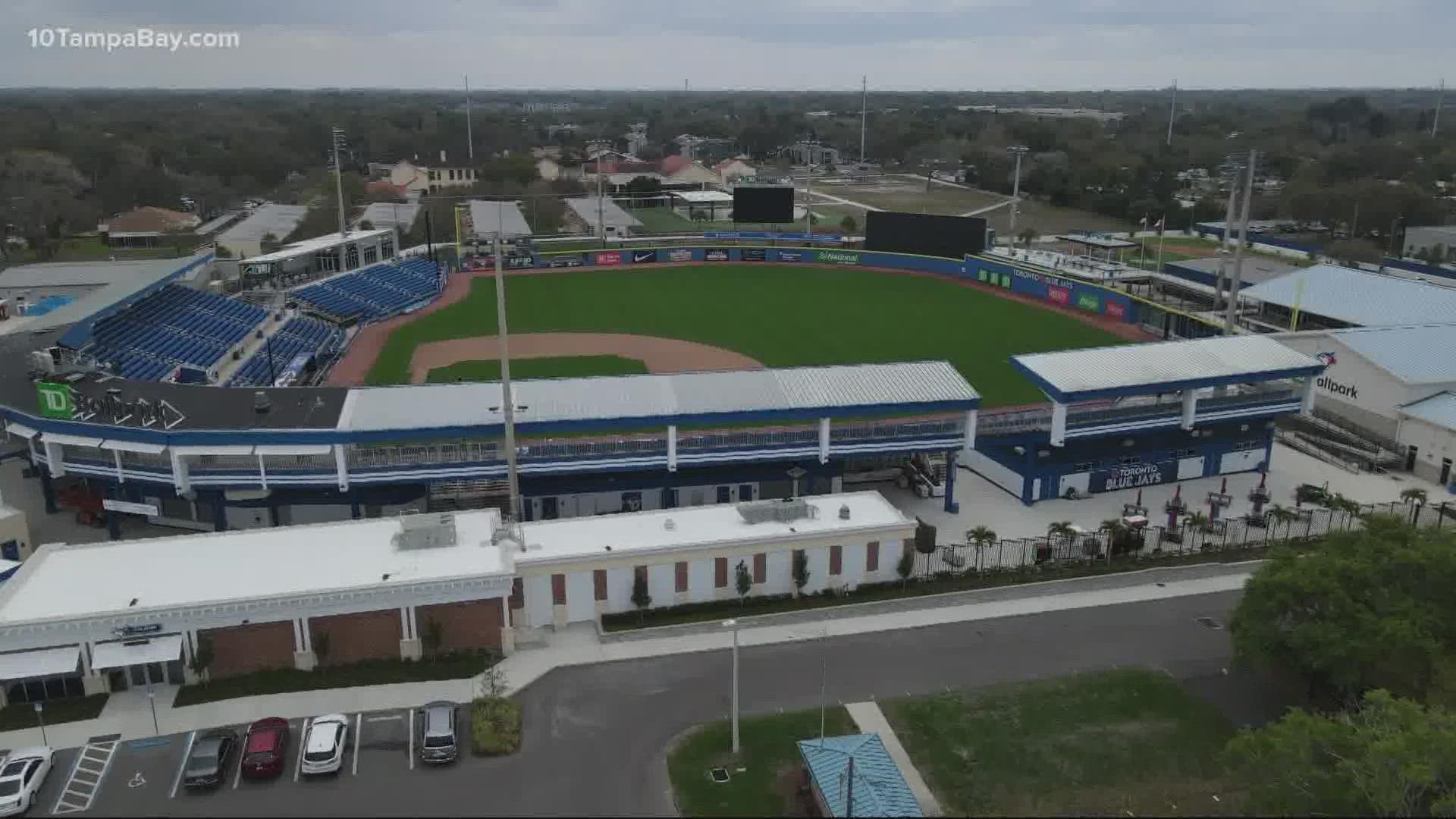ST. PETERSBURG, Fla. — Major League Baseball was not able to meet its self-imposed deadline to negotiate a new collective bargaining agreement (CBA), opening the door to having its regular season delayed for the second time in three years.
The league's players' association has been in labor talks with owners since December 2021 after team owners imposed a lockout after the previous CBA expired – the first work stoppage since 1995.
Since then, MLB Commissioner Rob Manfred gave a Feb. 28 deadline for a new deal to be agreed upon in order to have a four-week spring training and allow Opening Day to start on time. Monday was the eighth straight day both sides met after meeting just six times on core economics during the first 2 1/2 months of the lockout.
The most contentious proposals in dispute involve luxury tax thresholds and rates, the size of a new bonus pool for pre-arbitration players, minimum salaries, salary arbitration eligibility and the union’s desire to change the club revenue-sharing formula.
In addition, MLB has tied the elimination of direct free-agent compensation to players agreeing to higher luxury tax rates and still wants to expand the playoffs to 14 teams rather than the union’s preference for 12. MLB also has kept its proposal for an international amateur draft on the table.
Not since Aug. 30, 2002, has MLB come this close to losing regular-season games to labor strife. The union was set to strike at 3:20 p.m., but roughly 25 consecutive hours of meetings and caucuses culminated in an agreement at 11:45 a.m.
Bargaining has not had that type of frequency this year, but it has gained momentum since talks shifted from New York to Florida last week.
MLB is offering to raise the luxury tax threshold from $210 million last season to $214 million this year, increasing it to $220 million by 2026. Teams also want higher tax rates, which the union says would tend to act like a salary cap.
Players have asked for a $245 million threshold this year, rising to $273 million by the final season.
The union wants to expand arbitration to include the top 35 percent by service time of players with at least two seasons of major league service and less than three, up from the 22 percent cutoff in place since 2013.
The union proposed the pre-arbitration pool have $115 million distributed to 150 players, and management wants $20 million to be split among 30.
The last time baseball fans were forced to wonder when they'd see their favorite team on the field again was during the 1994 season.
At the time, representatives of MLB's players' union and team owners were stuck in a heated negotiation of how to disperse the league's revenue. Neither side could come to an agreement, causing players to go on strike at the tail end of the season, effectively canceling all games and eventually the World Series.
It was a huge blow to the sport, causing many fans to turn their back on baseball. It took the 1998 home run race between Mark McGwire and Sammy Sosa to get fans excited about America's pastime once again.
Now, in 2022, it seems like déjà vu for fans.
Here in the Tampa Bay area, a delayed season would have an impact beyond fans of the Rays and Marlins. Florida is home to the Grapefruit League during spring training. No games mean no fans in the area to spend money at shops and restaurants.

